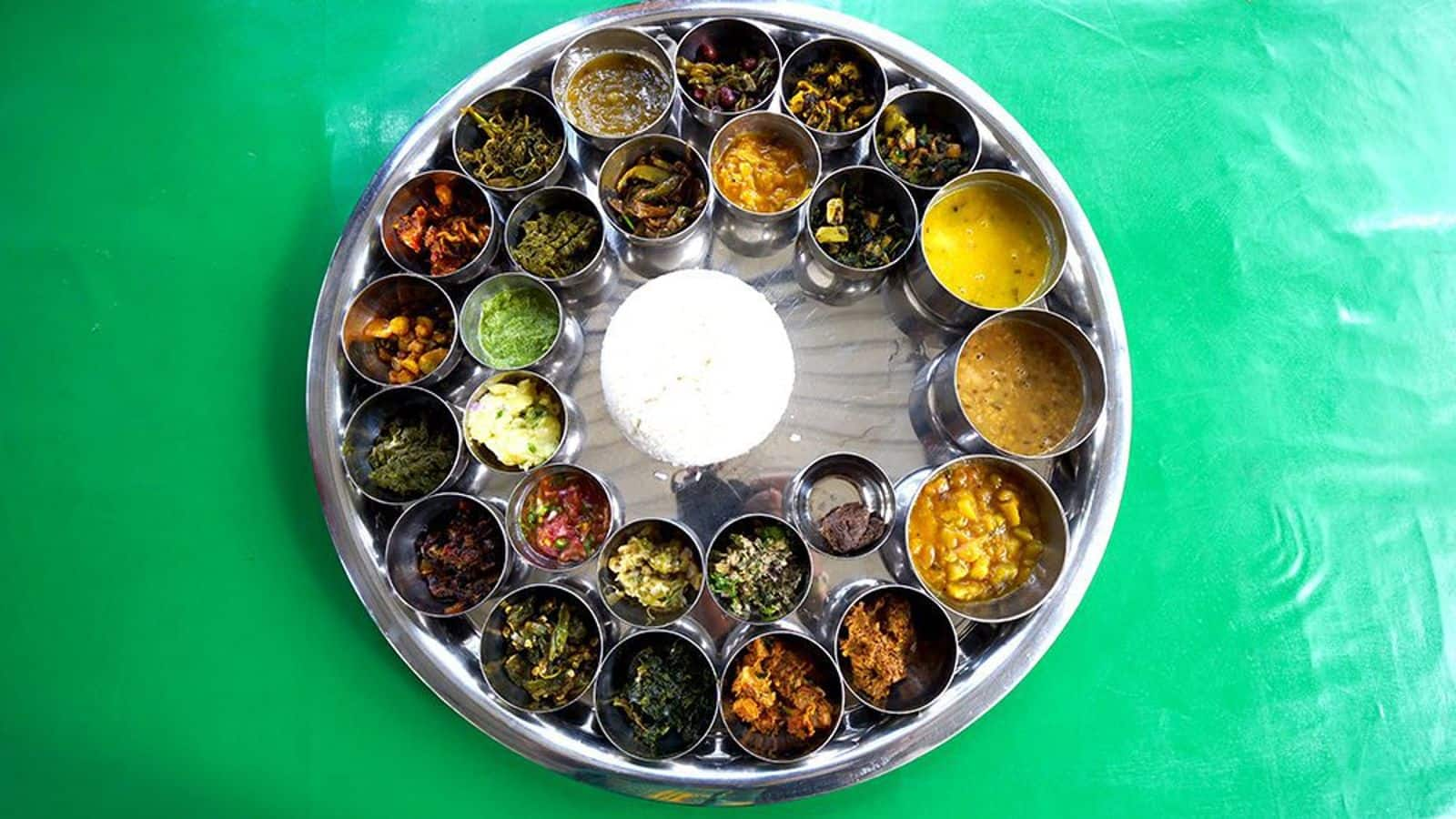
Gorge on these Assamese vegetarian delights
What's the story
Assam, a state celebrated for its verdant landscapes and rich cultural tapestry, boasts a distinctive vegetarian cuisine that is as nutritious as it is full of flavor. The culinary practices of Assam are deeply interwoven with the use of local produce and uncomplicated cooking techniques. Here, we explore five vegetarian staples that are fundamental to the Assamese way of cooking and eating.
Dish 1
Assam tea leaves
Assam tea, with its robust flavor, is more than a beverage; it's a core element of the state's identity. Cultivated in the fertile Brahmaputra Valley, these leaves are commonly used to make a strong cup of chai. Packed with antioxidants, Assam tea not only aids in digestion but also offers a gentle caffeine boost to energetically kick-start the day.
Dish 2
Joha rice
Joha rice is a fragrant variety indigenous to Assam. This short-grained rice has a delicate aroma similar to jasmine or basmati but with its own distinct character. It's often served as part of meals or used in preparing traditional desserts like payas (rice pudding). Joha rice is also high in nutrients compared to regular white rice.
Dish 3
Bhoot Jolokia (ghost pepper)
Bhoot Jolokia, known as ghost pepper, is among the world's spiciest chilies. It brings a fiery burst to Assamese cuisine, enhancing curries and pickles with minimal use. Its intense heat is balanced by health benefits; it aids in boosting metabolism and has anti-inflammatory properties. A mere sprinkle of this chili can transform a dish, making it an essential, albeit potent, ingredient in vegetarian cooking.
Dish 4
Tenga Anja (sour curry)
Tenga Anja is a beloved Assamese sour curry, traditionally featuring fish. For those favoring vegetarian options, tomatoes or lemons serve as excellent substitutes, creating a dish that remains true to its tangy and simple roots. This light curry is bursting with flavor and pairs wonderfully with rice. It's not only delicious but also a good source of vitamin C and other vital nutrients.
Dish 5
Khar
Khar, an Assamese dish, is alkaline-based, made by filtering water through ashes of sun-dried banana peels or bamboo shoots. The vegetarian version uses raw papaya or bottle gourd, adding detoxifying qualities and aiding digestion with its alkalinity. This preparation is a healthful staple in Assam's diet, showcasing the region's commitment to simple, nourishing ingredients and traditional cooking methods.